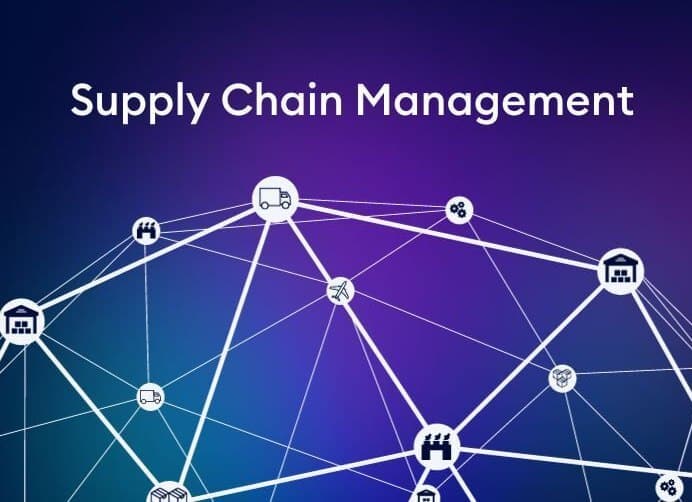The Role of IT in Modernizing Logistics and Supply Chain Management
Can you imagine a world without the use of Information Technology (IT)?
Maybe not. This is because IT is deeply integrated into almost every aspect of our life in today’s digital age. It has revolutionized how we communicate, work, and solve problems.
No industry or sector is left behind by the transformation effect of IT, and logistics and supply chain management is no exception.
As global logistics and supply chain management become more demanding and intricate, the role of information technology becomes a pivotal force in reshaping this domain. It can be clearly seen that today’s efficient logistics and supply chain management systems can come down without the prominent contribution of IT.
In this blog, we will understand why IT is important in logistics and supply chain management, how it plays a key role, and what benefits it brings to businesses.
Understanding the Importance of IT in Logistics and Supply Chain Management
The integration of information technology in logistics and supply chain management carries the utmost importance for organizations to improve their operational efficiency and drive business growth.
By harnessing the power of IT, links within the logistics and supply chain gather huge amounts of data and use it to improve their operations, implement new processes, enhance efficiency, and create a better plan for the future.
It is an undeniable fact that the role of information technologies in supply chain management is ever-evolving. According to a report, 60% of organizations from different industries expect information technology to have a major or moderate impact on logistics and supply chain management in 2025.
How Does IT Impact Logistics and Supply Chain Management?
Logistics and supply chain management is a critical component for businesses that strive to maintain efficiency and competitiveness in an increasingly complex market.
Having said that, logistics and supply chain management are heavily dependent on IT to carry out numerous important activities like operation, monitoring, development, and cost reduction across various key aspects of logistics and supply chain management.
Here are some significant ways in which IT plays a key role in modernizing logistics and supply chain management:
Inventory Management
Inventory management serves as a cornerstone of efficient logistics and supply chain operations, ensuring that products are available when needed while minimizing excess stocking of products.
Information technology can help businesses to precisely control inventory levels, reduce costs, and increase responsiveness to market demand. IT introduced an unparalleled level of precision and efficiency to inventory management. It transforms traditional practices into dynamic, data-driven processes.
Warehouse Management Systems (WMS)
Warehouse management is pivotal in logistics and supply chain operations, focusing on the efficient storage and movement of products within a warehouse. Effective warehouse management ensures that products are easily accessible, storage costs are minimized, and order fulfillment is enhanced.
Information technology, particularly through Warehouse Management Systems (WMS), plays a critical role in transforming these activities by automating tasks, optimizing space, and improving accuracy. IT helps with automated picking and packing processes and streamlined receiving and shipping.
Order Processing and Fulfillment
Effective order processing and fulfillment are essential for customer satisfaction and operational efficiency in logistics and supply chain management. By ensuring that customer orders are processed and fulfilled accurately, companies can streamline their internal operations and enhance customer loyalty.
IT plays an important role in revolutionizing these processes through automation and integration, making them faster and reducing friction. IT provides businesses with benefits like automated order entry, real-time order status tracking, and dynamic order routing.
Transportation Management
Efficient transportation management is a critical component of supply chain management, ensuring that products are delivered efficiently and cost-effectively. Effective transportation operations can significantly reduce overhead costs and improve service levels by optimizing delivery routes and managing courier operations adeptly.
Information technology acts as a catalyst in transportation management, enhancing visibility, improving coordination, and enabling data-driven decision-making. IT helps in route optimization, real-time shipment tracking, and carrier contract management.
Demand Forecasting
Demand forecasting is important for aligning production and procurement of goods according to market needs. By accurately predicting future demand, companies can optimize their resources, minimize waste, and serve better to their customers.
IT enhances the accuracy and efficiency of these forecasts by analyzing large amounts of data from different sources, including market trends, fluctuations in sales, and factors like seasonal variations and economic indicators. IT also helps logistics and supply chain management with machine learning models and scenario planning.
Supplier Relationship Management (SRM)
Supplier Relationship Management (SRM) is a systematic approach to developing and managing partnerships with suppliers, i.e., those who supply goods or services to an organization. It is important to maintain seamless production and procurement cycles and plays a crucial role in gaining a competitive edge.
Information technology enhances SRM by providing tools that streamline communication, improve contract management, and facilitate collaborative decision-making. IT offers Electronic Data Interchange (EDI), contract management platforms, and risk management tools for SRM.
Benefits of IT in Logistics and Supply Chain Management
The reason behind the rising popularity and integration of information technology in logistics and supply chain management is the endless benefits that it offers for the industry. Some of these benefits are as follows;
Enhances Efficiency and Reduces Costs
One of the primary benefits of IT in logistics and supply chain management is enhanced efficiency and reduced costs. By leveraging automation and real-time data analytics, businesses can streamline their operations, minimize operational expenses, and improve resource allocation.
Improves Access to Information
The collaboration between IT and logistics and supply chain management works well as it connects previous information and data. IT helps in gathering information and making it available to all the logistics and supply chain participants. Information about every aspect of logistics and supply chain can be accessed in one place.
Enhances Customer Satisfaction
IT in logistics and supply chain contribute to enhancing customer satisfaction. With advanced information technologies, companies can better predict customer demands and ensure timely deliveries. This further enhances the overall customer experience, fosters customer loyalty, and provides a competitive edge.
Improves Agility
Information technology in supply chain management enhances agility. It becomes easier for businesses to address the problems or generate new growth opportunities much faster when they have better insight, thanks to enhanced access to information and simulations.
Improves Decision-Making
Businesses can quickly access precise and latest data thanks to the use of information technology in logistics and supply chain management. This enables businesses to make well-informed decisions based on the current information and enables them to identify upcoming challenges, early on.
Future of IT in Logistics and Supply Chain Management
Emerging information technologies like AI, ML, and IoT solutions are greatly impacting logistics and supply chain management. In recent years logistics and supply chain management have changed a lot.
IT has made things easier than before, and that’s the reason every business wants to adopt new emerging technology in their logistics and supply chain operations. For example, Blockchain technology is one such technology that provides data security.
So in a nutshell, the future of Information technology in logistics and supply chain management looks bright. Information technology will become a game-changer for logistics and supply chain management.
Concluding Thoughts
The role of IT in logistics and supply chain management cannot be overstated. From warehouse management systems and order processing to demand forecasting and transportation management, information technology is the backbone of modern logistics and supply chains.
Companies that embrace IT solutions are better positioned to adapt to market demands, stay competitive, and drive growth. As we look into the future, the integration of advanced technologies such as AI, IoT, and blockchain promises to further transform the landscape, making logistics and supply chain management more efficient, transparent, and sustainable than ever before.




